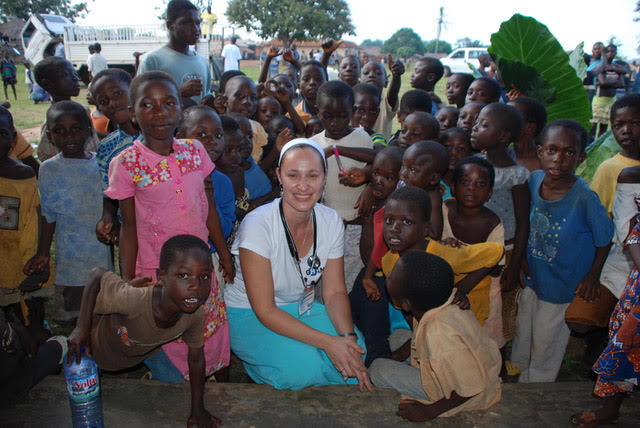In 2004, as a family physician and mother of five young children, I had an epiphany. I realized that while I had been diligently focused on the needs of my family and community, it was time to offer what I could to my global neighbours.
On my 37th birthday, I left my young family for two weeks and, together with a handful of health-care colleagues from Ontario, went to offer my services in Northern Ghana, one of Africa’s most impoverished regions.
There, we encountered grinding global inequalities. Witnessing the ongoing suffering of people whose levels of pain and mortality would have been unthinkable with access to Western medicine was a profound shock. Yet, engaging with this radically under-serviced yet resilient – even joyous – population ensured that I could not make just one visit. That first mission expanded to become an international collaboration spanning 15 years and transforming thousands of lives –including my own.
On each mission, my day ended with midnight blogging. Initially, this practice served to keep the families of our health-team members informed, yet I also came to rely on it as a means of processing the flood of new experiences each day held. Mourning losses and celebrating healing were important, and chronicling comic and transcendent moments equally so. Ultimately, those years of anecdotes, revelations and ponderings became the nucleus of the book Grant us Tomorrow.
I believe that if global health is to be reimagined, people with power and privilege must master the art of allyship and accompaniment. During his speech at the 2022 United Nations General Assembly, Secretary-General António Guterres stated that the international community is neither “willing” nor “ready” to combat key challenges threatening the future of humanity. To more than 100 world leaders attending the meeting, he emphasized that the world “has a duty to act,” and yet “we are gridlocked in colossal global dysfunction.” While I cannot disagree with Guterres, Grant Us Tomorrow is a story about health-care professionals from around the world who are willing and ready to fulfil their duty to act in the face of a key challenge threatening the future of humanity – health for all.
People with power and privilege must master the art of allyship and accompaniment.
I am presently the Director of International Partnerships for the Leyaata Hospital in Northern Ghana – a new 50-bed hospital serving a rural and remote population with limited access to health care. The hospital is staffed by many of the determined and talented Ghanaians we met in 2007. This hospital, a dream which once seemed unthinkably ambitious, was realized person by person, mission by mission. I hope that by detailing the health-care challenges in Ghana, and the interventions we partnered with them to provide, the difficult will be recognized as possible. Reimagined global health care begins with individuals inspired to strive for health-care equity, writing their own story of how they participated in transforming our world.
All proceeds from books purchased go to support the education of Ghanaian health-care professionals.



The comments section is closed.